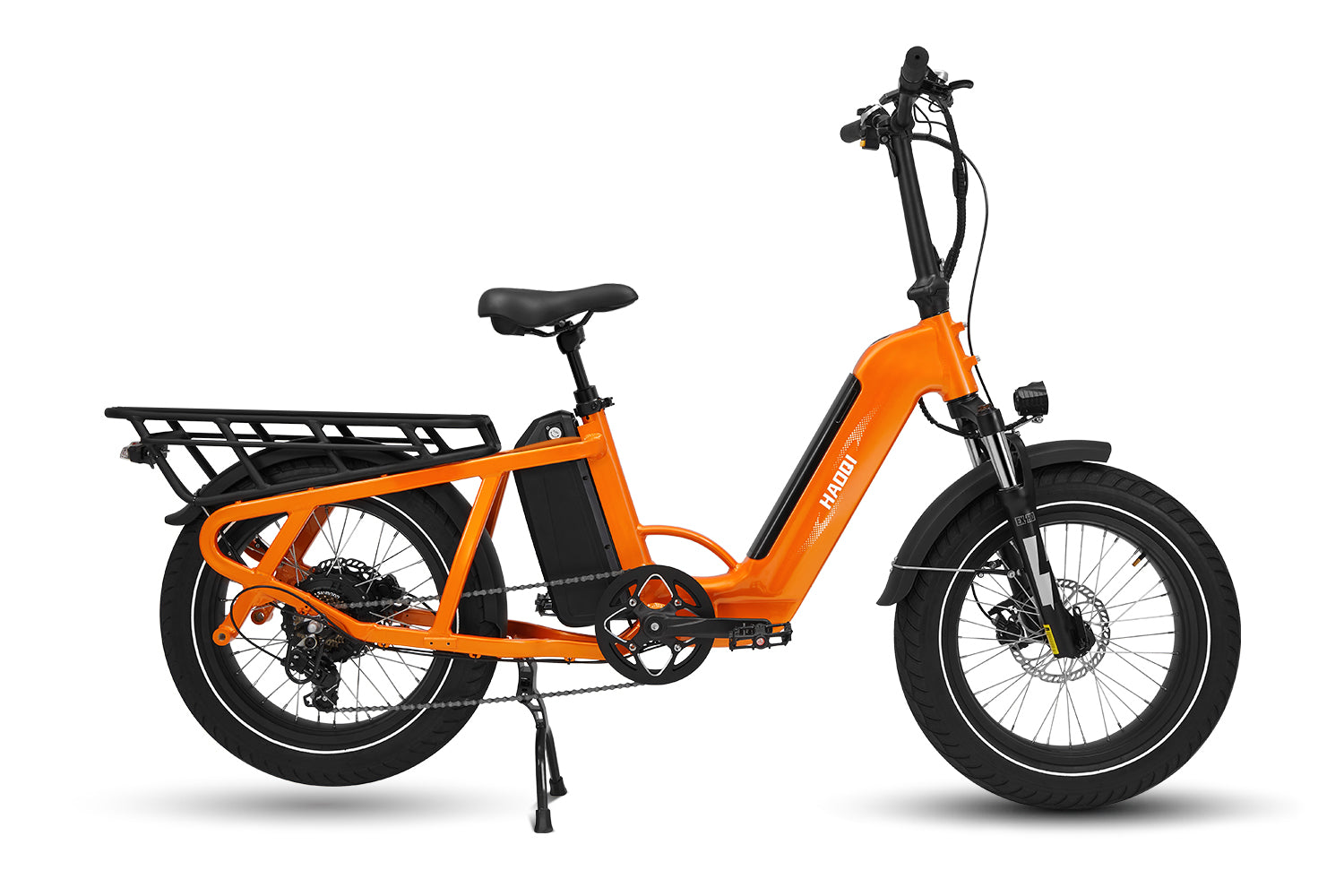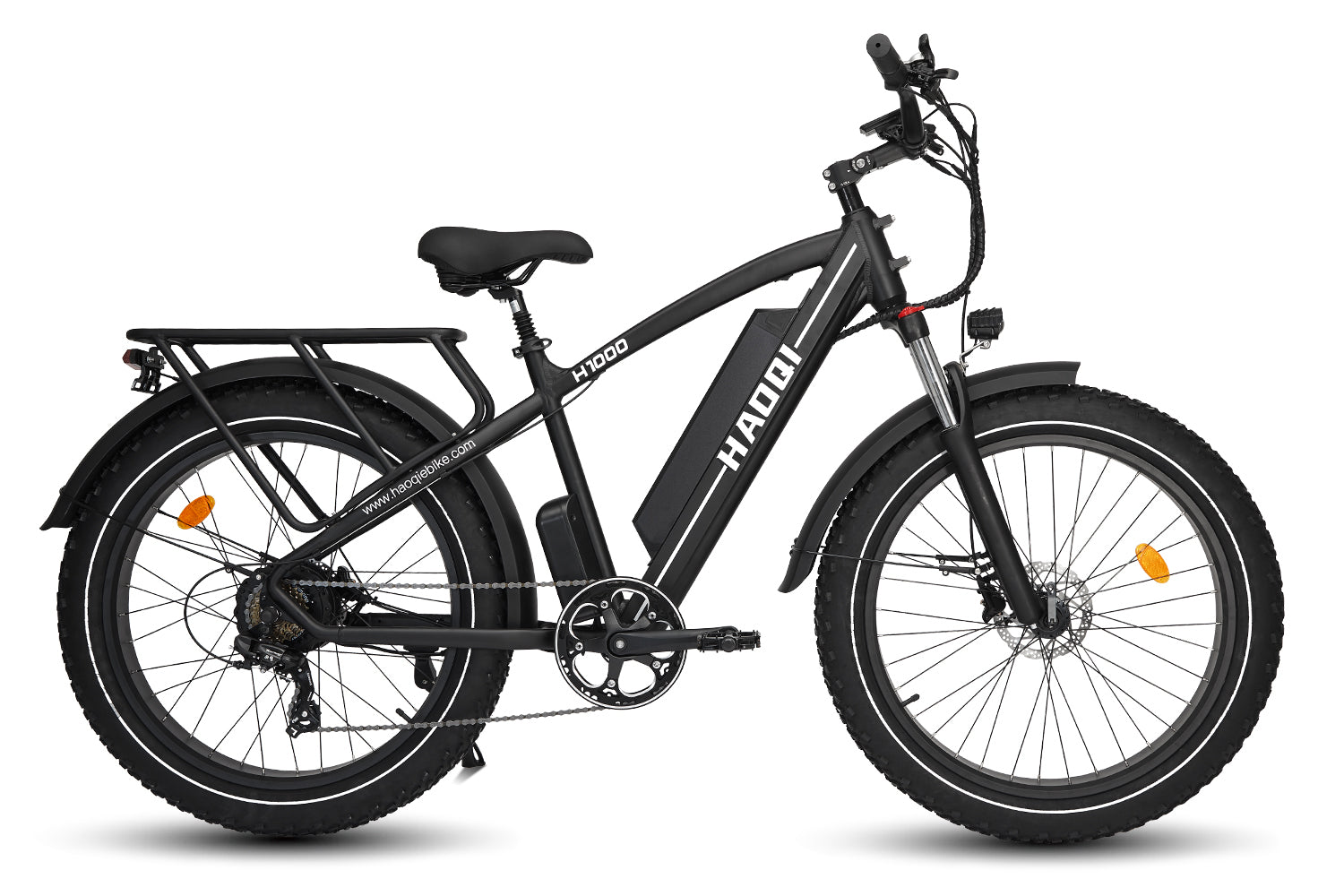Are you considering getting an electric bike but worried about the cost? Good news! The electric bike tax credit may help make your decision easier. These financial incentives, either nationwide or in your specific state, are designed to promote eco-friendly transportation by making e-bikes more affordable. In this guide, we'll explore everything you need to know about the electric bike tax credit, including how it works, how you can claim it, and just how much you can save.

What Is the Electric Bike Tax Credit
The tax credit for electric bike is a government incentive designed to encourage the adoption of environmentally friendly transportation options by making electric bikes more affordable for consumers. This tax credit allows individuals to deduct a portion of the cost of purchasing a new qualifying e-bike from their taxable income, effectively reducing the overall expense.
So, is there a tax credit for electric bikes nationwide? While not yet enacted, there is a proposed federal electric bike tax credit in the United States. The Electric Bicycle Incentive Kickstart for the Environment (E-BIKE) Act was first introduced in 2021 and reintroduced in 2023, aimed at promoting the adoption of electric bikes for both recreational and transportation purposes.
In addition to the potential federal tax credit, various states and local governments offer their own incentives, some of which are already up and running. These states include Colorado, Connecticut, Georgia, Hawaii, Indiana, Iowa, New York, Rhode Island, Texas, and Vermont.

How the Electric Bike Tax Credit Works
The workings of the electric bike tax credit, whether at the federal or state level, are generally structured to provide substantial financial relief to consumers purchasing qualifying e-bikes. Most government programs offer tax rebates that discount around 20-30% off the price of an eligible electric bike.
Each state might have variations in their rebate values and qualifications. Many states tailor their incentives to provide greater benefits to individuals with low incomes or those facing financial hardships. The maximum rebate offered under these programs can vary significantly—from as much as $2,000 to as little as $150, depending on the specific program's structure and funding.
Now how do electric bikes qualify for tax credit? The eligibility criteria for e-bikes are mostly uniform across the federal or programs for different states. To qualify for the rebates or discounts, the electric bikes must:
- Be classified e-bikes, typically regulated as follows:
- Class 1: Assists only when pedaling, with assistance stopping at 20 mph.
- Class 2: Provides assistance regardless of pedaling but stops at 20 mph.
- Class 3: Assists only when pedaling, with assistance stopping at 28 mph.
- Have an electric motor of 750 watts or less.
- Have two or three wheels with fully operable pedals.
Additionally, most programs stipulate that the e-bike must be new and purchased from an approved bike shop within the area, often providing a list of approved retailers.

How Do I Claim the Electric Bike Tax Credit?
Claiming the electric bike tax credit is a straightforward process, but it requires careful attention to details to ensure you receive the maximum benefit. The process would typically involve the following steps:
- Purchase a Qualifying E-Bike: Ensure that the e-bike you purchase meets the specific eligibility criteria, as we've discussed above.
- Retain Your Purchase Documentation: Keep all receipts, invoices, and proof of purchase. These documents are crucial for verifying your claim. Make sure they clearly show the bike's make, model, price, and the date of purchase.
- Complete the Required Forms: When filing your taxes, you will need to fill out specific forms related to the electric bike tax credit.
- Submit Documentation with Your Tax Return: Attach copies of your purchase documents and completed forms to your federal or state tax return. Ensure all information is accurate and complete to avoid delays or rejections.
How Much Tax Credit Would I Get from the E-Bike Tax Credit?
The amount of tax credit you can receive from the e-bike tax credit varies based on federal and state-specific programs, each designed to make electric bikes more accessible and affordable. Here's a closer look:
- Federal Level: The proposed federal E-BIKE Act offers a tax credit of up to 30% of the cost of a qualifying e-bike. The maximum credit is capped at $1,500 for e-bikes that cost less than $8,000.
- Colorado: The State of Colorado offers an immediate discount of $450 at the point-of-sale when purchasing a qualifying e-bike from participating retailers.
- Connecticut: In Connecticut, the e-bike incentive program provides a $500 standard voucher, with an additional $1,000 for low-income residents, applicable to e-bikes under $3,000.
- Hawaii: Residents in Hawaii can get a tax rebate of up to $500 or 20% off a new e-bike, provided they meet certain conditions such as not owning a car, participating in a low-income assistance program, or being enrolled in an educational institution.
- Rhode Island: The Erika Niedowski Memorial Electric Bicycle Rebate offers 30% off, up to $350, for the general public, and 75% off, up to $750, for low-income applicants towards the purchase of an e-bike.
- Vermont: Vermont's incentive scheme provides $400 for a new certified e-bike for residents earning below specific income thresholds. Eligible individuals receive a prepaid debit card to use at approved retailers.
Conclusion
As we've learned, the electric bike tax credit, at both federal and state levels, offers a promising opportunity for individuals looking to invest in sustainable transportation. With potential savings through the financial incentives, purchasing an e-bike becomes not only an environmentally conscious decision but also a financially wise one. As you consider purchasing an e-bike, remember to review the specific eligibility criteria and claim process for your state program. Embrace the shift to greener transportation with the support of the electric bike tax credit, and pedal forward into a sustainable future.
FAQ
How much tax credit would I get from the e-bike tax credit?
The amount of tax credit you can receive from the e-bike tax credit varies depending on the specific program. Under the proposed federal E-BIKE Act, you could qualify for a tax credit of up to 30% of the cost of a new e-bike, with a maximum credit of $1,500 for e-bikes costing less than $8,000. Additionally, several states offer their own e-bike tax credits, which can vary widely in terms of amount and eligibility criteria.
Is there a limit to how many e-bikes I can claim the tax credit for?
Yes, there is a limit. Under the proposed federal E-BIKE Act, you can claim a tax credit for one e-bike per taxpayer every three years. Joint filers in a household can claim the credit for up to two e-bikes within the same three-year period.





![HAOQI Antelope 500W Cargo Electric Bike (UL Certified) [electric bike] [HAOQI ebike]](http://haoqiebike.com/cdn/shop/products/haoqi-antelope-cargo-electric-bike-with-dual-battery-haoqiebike-com-1.jpg?v=1753954498&width=1500)
![HAOQI Squirrel Folding Electric Bike (UL Certified) [electric bike] [HAOQI ebike]](http://haoqiebike.com/cdn/shop/files/1_03c67b67-715e-4617-a648-51f108ceb425.jpg?v=1766473332&width=1500)

![HAOQI Eagle Long Range Electric Bicycle (UL Certified) [electric bike] [HAOQI ebike]](http://haoqiebike.com/cdn/shop/files/2_bf7ae46b-aad6-472a-9c14-d56ca3f0feb6.jpg?v=1755142722&width=1500)

![HAOQI Antelope Pro 750W Cargo Electric Bike (UL Certified) [electric bike] [HAOQI ebike]](http://haoqiebike.com/cdn/shop/products/haoqi-antelope-pro-cargo-electric-bike-with-dual-battery-750w-haoqiebike-com-1.jpg?v=1751610204&width=1500)









Leave a comment
All comments are moderated before being published.
This site is protected by hCaptcha and the hCaptcha Privacy Policy and Terms of Service apply.